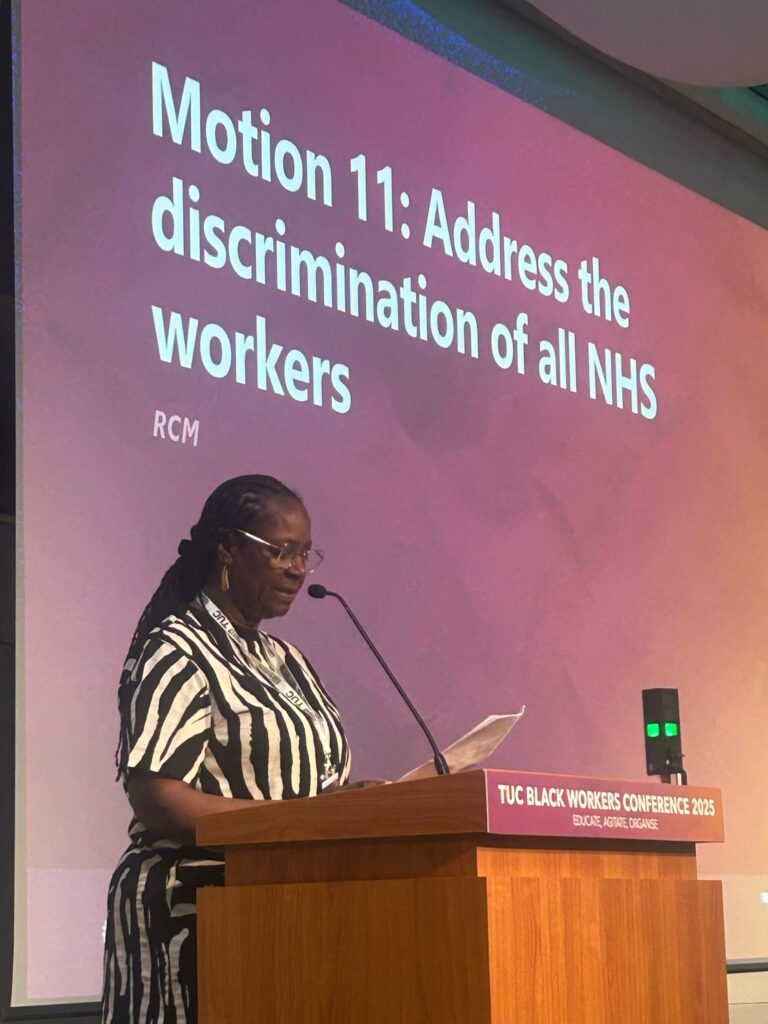The UK general election campaign is now well underway, even if we are still less than halfway through it, and the RCM is off to a flying start in putting your interests front and centre.
We are pitching to candidates and the parties the ideas we know would deliver big improvements in maternity services. You can read those for yourself on the RCM website, which has a dedicated section on the election. There you will find not just the ‘asks’ that we have of the next government but advice and ideas about how you can help by challenging candidates on the issues that matter.
The website also links to all the information you need to register to vote as well as how to apply for a postal or proxy vote. This is important because while polling day on Thursday 4 July may seem a long way off, the deadlines for things like registering to vote are fast approaching.
We want to remind student midwives too that they can register to vote at both their home and university addresses and can decide for themselves where to cast their vote – though they must only cast a vote at one, not both.
Remember too that everyone will need photo ID to vote in person at a polling station. You can find out what is valid and what isn’t on the Electoral Commission website. If you don’t have any of these, you can apply for a free Voter Authority Certificate, but there is a deadline for that too (4pm on 26 June).
So, about three weeks in, where do things stand in this election campaign?
We are reaching an important stage, with manifestos due next week. The Lib Dems’ plans are expected on Monday, the Conservative document scheduled for publication on Tuesday, and Labour’s out on Thursday. The RCM will be reading and analysing these as well as the manifestos of other parties from across the entire UK, and we will go through the detail in a post at the end of next week.
Even before we get our hands on those glossy documents however, some details have already been released by parties or otherwise leaked out.
For example, the Conservatives have announced an extra £1bn to build new GP surgeries and community diagnostic centres. This does not directly include maternity care, though the case could be made as new premises are planned for the inclusion of facilities for more community-based care, including by midwives.
A little more detail has been reported on what Labour is expected to offer. This includes a lower retirement age for ambulance workers, with the expectation is that this will be extended to other NHS staff – presumably including midwives and maternity support workers.
The party is reportedly set to look afresh at how public sector pay is set, though a review of parts of this process was already underway when the election was called. It is not expected that there will be any new money for public sector pay.
There is also an expectation that Labour will commit to increase the rights of working people more generally, but again we await the detail.
Labour has also previously committed to a big expansion in the NHS workforce, specifically including through training more midwives.
The Liberal Democrats have committed to a series of new mental health checkups at key points in life, including for new parents. These would be designed to help spot the early signs of mental health problems.
They also plan to double statutory maternity pay to £350 a month, increase paternity pay and create a use-it-or-lose-it ‘dad month’, to encourage more fathers to take parental leave.
The party has also committed to an extra £1bn per year to boost local authorities’ public health budgets, which have been used in the past to promote breastfeeding and other measures aimed at pregnant women.
The Green Party has called for big rises in NHS pay as part of a substantial increase in the health service budget.
Healthcare policy is devolved across the UK, so any policy changes would apply only to England. That said, ideas floated during the campaign as well as ones that are implemented post-election and which are shown to work may then be picked up and tried in Scotland, Wales and Northern Ireland. Additionally, any increases to the budget spent by the UK Government automatically increases the money sent to Edinburgh, Cardiff and Belfast for those governments to spend as they see fit, including on healthcare.
That being said about devolution, the Scottish National Party has announced that it will put forward a new law early in the new House of Commons that will seek to limit the private sector’s involvement in the delivery of NHS care, even though that would apply only to the NHS in England.
A lot is happening, and you can get involved by challenging candidates on issues most important to you. Rest assured that whichever candidates are elected next month and whoever forms the next government, the RCM will be getting to work on advocating for you as soon as the ballot papers have been counted.


